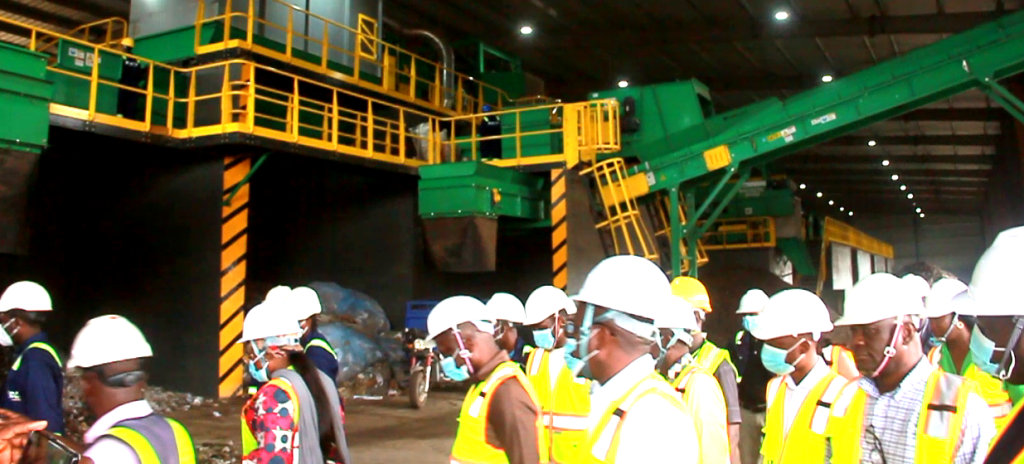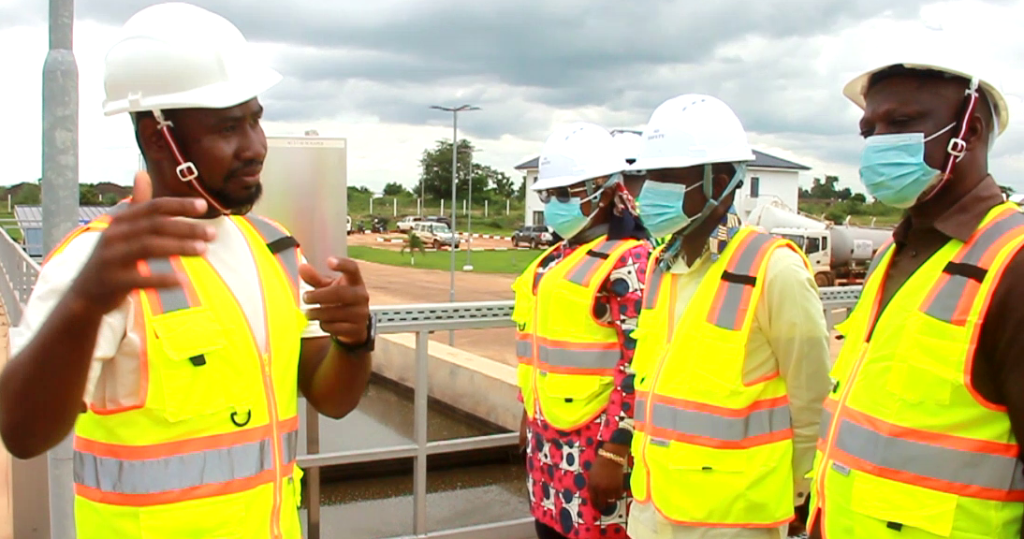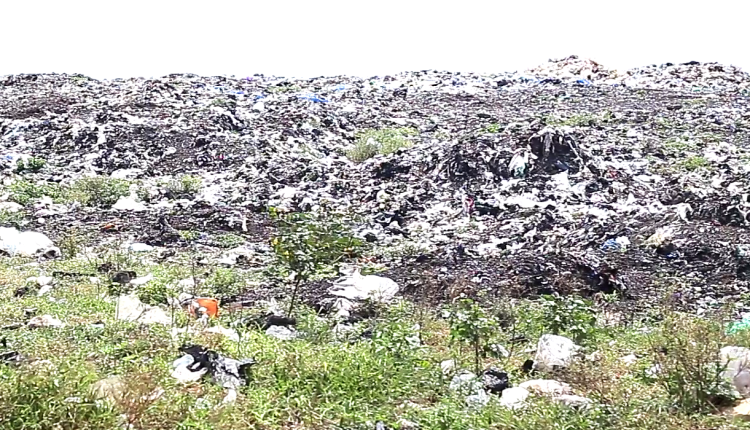Sanitation fight in Ghana needs dedicated funding-select committee on sanitation and water resources proposed
The Parliamentary select committee Sanitation and water resources has paid a working visit to the Integrated Recycling and Compost Plant at the Tamale landfill site at Gbalahi.
The visit was to offer members the opportunity to understand the operations at the Tamale landfill site. The landfill site currently has three major processing plants dealing with solid, sewage and medical waste.
Officials from the three operating plants under the Jospong group of companies took turns to present on their operations. The select committee on sanitation and water resources embers were conducted round the Integrated Recycling and Compost plant(iRECOP), the medical waste treatment facility and the sewage treatment plant.

iRECOP was commissioned in October 2024 with the capacity to process 600 tons of waste. However, on Average, the plant receives between 400-500 tons a day.
iRECOP Operations Manager, Alhaji Kamil Nashiru told the committee that the plant since its commissioning has been operating on a generator because they are yet to raise the 500,000 as cost for connecting to the national grid and appealed to the committee to consider it in their report.
Tamale metropolis according to Sewage waste plant managers received 80 tracks per day amounting to 800 tons representing 70-80%.
Speaking to the media, Chairman of the committee, Kwabena Oti John Blesse described the plants as very important in the management of waste in the northern region. The committee he said will advocate for dedicated source of funding to deal with sanitation in Ghana.
The chairman explained that countries that have managed their waste well have levies on e-waste. We have been to similar facility in Kumasi and met Burkina Bae government officials seeking partnership with Jospong Group companies to set up same facility in their country.
’’In Ghana, the issue of sanitation is hundred percent handled by private sector, government is virtually doing nothing. It is under this current government under President John Dramani Mahama who has tasked metropolitan, municipal and district chief executives that their performance will be measure by sanitation and other developmental issue’’.
That’s why wherever we visit, we visit the assemblies he added. The committee recommendations Mr Oti Bless assured will give at the end of the day will be acted upon by the president. As a committee, we have oversight responsibility and will champion dedicated source of funding for sanitation issues.
’’In almost all the countries around the world there is dedicated funding because it is a daily problem; We generate waste on daily bases and dedicated funding to facilitate payment of service providers. He also called on the people to change their attitude towards the environment’’.
He urged the media to use their platforms to educate people on proper disposal of waste. Zoomlion and the government he explained has a contract where waste bins are provided at market centers and other busy centers and behooves on the people to dispose waste properly without littering the environment.
Processing Engineer at the Sewage plant, Mr Richmond Nii Addotey Nubuor explained that the plant has the capacity to process 1000-meter cubic liquid waste daily.

The plant he explained currently received between 800 and 900 waste from communities and commercial places and convert it into bio-solid such compost for farmers for experimental trials.
Operations Manager of Medical waste treatment plant, Mr Benjamin Dinka Yanman told Zaa News medical waste from government hospitals and Shrader them. are about the volumes of waste they received and how the waste is turn into useful products.


